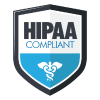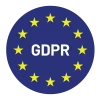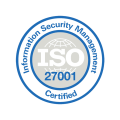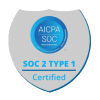
Health Ownership in Action
At HealthBook+, we use the term “health ownership” a lot, but what exactly do we mean? We believe that owning your health data is a fundamental human right. We also believe that access to health information will allow people to make the best, most informed decisions regarding their next best health actions. Our platform is designed to provide people with the tools and resources needed to make those decisions.
“Health ownership” happens when people—not medical facilities—own their health data. In this blog, we’ll explore what “health ownership” means and provide examples of it in action.
The current challenges with healthcare data
If you’re like most people, you’ve probably moved over the years, perhaps switched healthcare providers, or have seen multiple healthcare specialists for health issues. As a result, your health data is likely scattered in various places, making it almost impossible to have a consolidated view of your health history. This is the harsh reality for many of us today, and it’s not just frustrating—it’s a serious barrier to efficient and effective healthcare.
Because of this disconnect, healthcare providers often do not get the “full story” of a person’s medical history. They must search in several different places and systems to get the right information, and sometimes the information they need is not available. This delay in access to your health information can also delay care and can even contribute to the worsening of a condition. Care can become reactive rather than preventive, resulting not only in inefficient care but a rise in healthcare costs. Preventive care can reduce more serious health issues and reduce costs.
The CDC reported that in the United States, 90% of the $4.1 trillion in annual healthcare expenditures are for people with chronic physical and mental health conditions.
In addition to these challenges, siloed data also plays a part in healthcare provider burnout. The National Library of Medicine reported that a survey of 4,720 U.S. physicians working 20+ hours a week in direct patient care revealed that the average physician spent 16.6% of their working hours on administrative tasks. While administrative burden is not the sole cause of provider burnout, it certainly plays a significant role.
Scattered healthcare data also impacts patients. A 2010 survey revealed that American patients had seen an average of 18.7 different doctors during their lives—that’s a lot of patient data stored in many different medical offices. It’s difficult for patients to keep up with their medical information over time, and with geographical and career changes, it becomes nearly impossible. Without easy access to their health data, patients often feel overwhelmed when faced with making decisions regarding a health condition or illness. They’re not sure about the next best steps for care and can have difficulty communicating clearly with their provider for guidance. When people are unsure of their conditions, they often turn to the internet. Lack of information (or even misinformation) on the internet can cause anxiety and delays in care—or inappropriate utilization of care, leading to poor outcomes and increased costs.
Health ownership in action
Many medical practices utilize electronic health records (EHRs) built for billing to fix the challenges created by siloed medical data, but these are exclusive to the specific clinic or health system and aren’t built for physician needs and ease of patient use. HealthBook+ is an early health identification and guided health platform that streamlines clinical workflows, reduces administrative burdens, and enhances patient care. Our simple-to-use, digital-first care platform puts patients in charge of their health journey by using advanced AI to suggest their next best health action. If a user has concerns about their health, they can use our secure Health Checker to list details about their symptoms and get instant information, including possible causes, recommendations for accessing care, and warnings about urgent conditions.
HealthBook+ helps remove the legwork that can often hinder medical teams’ ability to provide optimal and time-sensitive care. Our Connection Hub collects healthcare data from a variety of sources like labs, imaging studies, appointment notes, wearables, self-reporting, and prescriptions. Our dashboard provides a real-time snapshot of the user’s biometrics, active medical issues, health records, and more. This secure, protected information is accessible to the owner through a smartphone, tablet, or computer. Using this data, HealthBook+ leverages advanced AI to help identify health conditions early. HealthBook+ is portable and accessible from anywhere in the world and gives the user the ability to easily share pertinent information with their entire healthcare team—increasing efficiency of care, reducing costs, and providing the most appropriate treatment.
To see health ownership in action, visit our website and contact us today!





